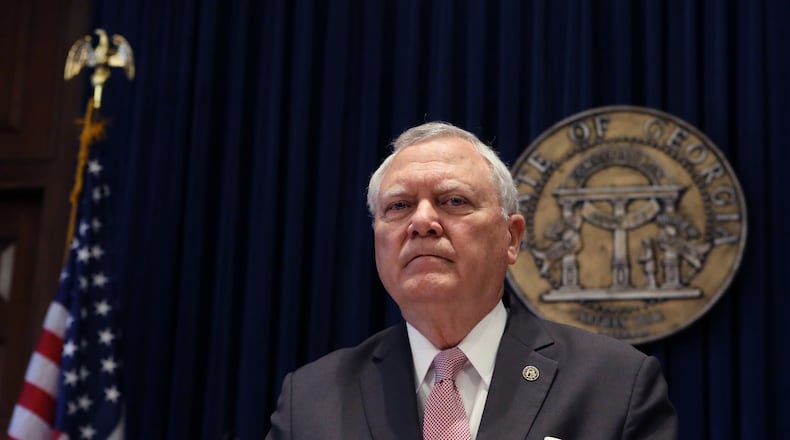He didn't pronounce it dead on arrival, but Gov. Nathan Deal said Wednesday he was wary of the "religious liberty" measure that came roaring back to the statehouse this week.
“We have to be extremely cautious,” said Deal. “We have benefited from the actions I took last year, and we’re still continuing to see states who have gone in other directions suffer the consequences – namely North Carolina.”
State Sen. Marty Harbin brought the debate over the legislation back to the forefront on Tuesday when he introduced a one-page, 18-line proposal that would require the federal Religious Freedom Restoration Act of 1993 to apply in Georgia.
This measure is significantly scaled down from the eight-page legislation that Deal vetoed last year, in part to make it harder for the governor to oppose. After all, while a member of Congress he voted for the federal legislation - a fact Deal brought up unprovoked in a brief interview.
“I think it’s only fair that we give it due consideration," he said. "Quite frankly, in 1993 when the federal act was passed we voted for it, as did most people in Congress."
A 1997 Supreme Court ruling found that part of the law didn't apply to the states, and dozens of legislatures have since passed their own versions to cover actions by state governments.
“There is certainly something worth looking at. But there have been so many negative connotations with what have gone on in other states – Indiana, North Carolina," Deal said. "It sounds simple on its face, but sometimes things that appear simple don’t work out that way.”
He added that he’s open to meeting with Harbin and other supporters as the legislation winds through the statehouse.
“I don’t think anyone wants our state to be put in a bad posture as a result of this kind of legislation. But I’m willing to meet with the author of the legislation and delve into what it does and doesn’t do. And I’ll keep an open mind until I have a chance to do that.”
About the Author
The Latest
Featured




